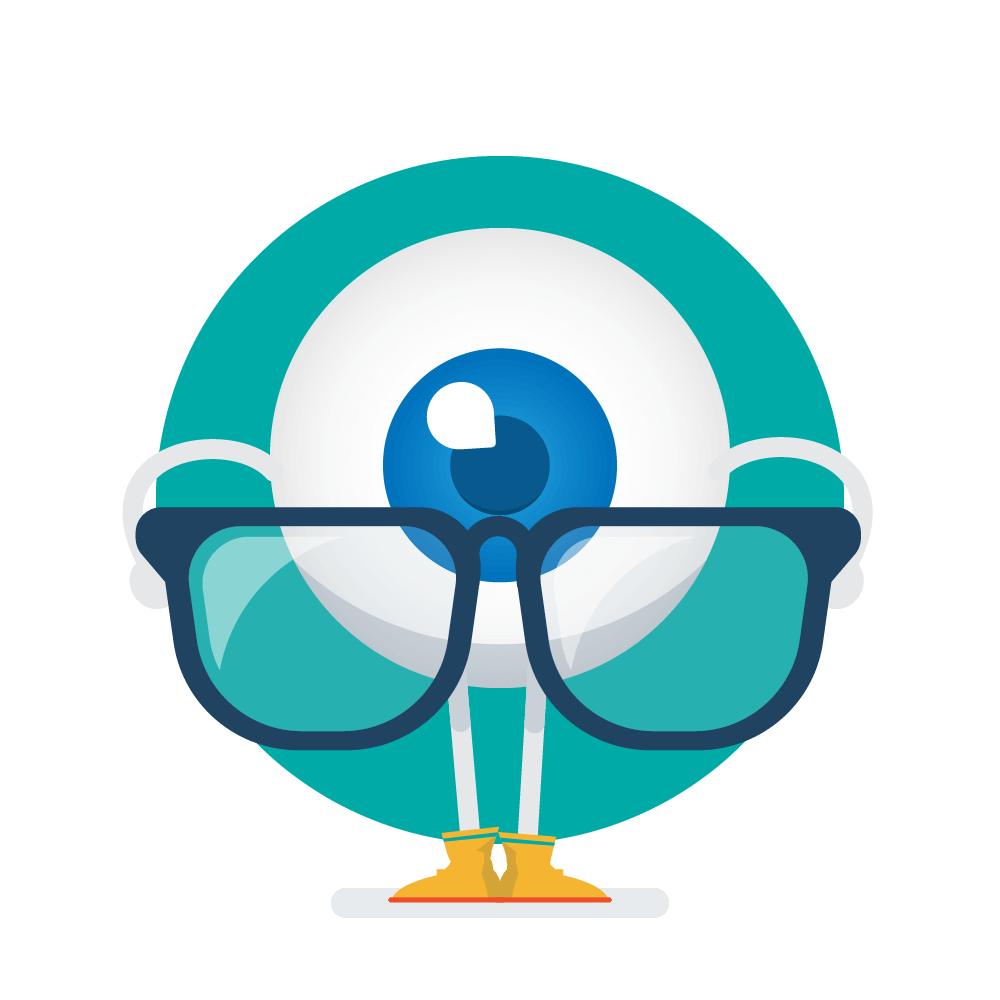Many patients ask us about blue light protection, and while it is marketed very aggressively, recent studies show that the amount of blue light being generated from our phones and computers are likely not causing us to have interruptions to our sleep cycle or damage to our eyes.
Eye Strain and Blue Light
The fact that digital screens are used in almost every aspect of our daily lives makes them hard to avoid. In the United States, people spend an average of 5 hours and 24 minutes using their mobile devices each day. In this blog, we will discuss blue light glasses, how effective they are at filtering blue light coming from digital devices, and whether they should be worn when using them.
Are Blue Light Blocking Glasses a Must-Have?
The most recent study done on blue light filtering glasses that block the blue light from entering the eye actually concluded that they aren't as effective as they were originally marketed to be. The amount of blue light exposure you get from your screen use can also be obtained from simply spending a few minutes outside in the sun, since the sun also emits the blue light and at extremely high quantities. Studies have shown that the amount of blue light you are exposed to when using a digital device will not significantly affect your circadian rhythm. Therefore, blue light glasses are not necessary by any means.
Is Blue Light Harmful to Your Eyes and What Should You do About it?
- According to a study by the American Academy of Ophthalmology (AAO), blue light does not harm our eyes. However, when you are exposed to a lot of blue light during the day, your circadian rhythm can be affected, making it hard for you to get a good night's sleep. That's also why a lot of screens and phones have night modes. By turning it on, you would reduce some of the blue light getting into your eyes, and you may be able to sleep better. You should also limit your screen time two to three hours before you go to sleep.
- While using an electronic device, fatigue often results from not blinking enough. When we're focused on something, such as a screen, we blink about 60% less than we normally do. In some cases, it's going to dry out the front surface of your eye, causing some discomfort, and then making your vision a little blurry. Whenever you can, try to take a break from your screen, look far and blink completely. You should follow the 20-20-20 rule, which means you should take a break every 20 minutes and look at something that is 20 feet away for 20 seconds. It is going to be really healthy for your eyes.
- You can also use artificial tears throughout your day, if you know you're going to be on the screen a lot that can relieve dry eye and eye discomfort. One note of caution is that eye drops only mask the symptoms and should not be used for extended periods of time unless directed by your eye doctor.
- Another easy tip to keep in mind while working on your computer is to decrease the brightness of your screen to keep your eyes comfortable.
- Maintain an arm's length distance from the screen. You can reduce glare by tilting the computer screen slightly downward.
Schedule an Eye Exam if you Suffer From Digital Eye Strain
In the event that digital eye strain interferes with your work or your education, we encourage you to schedule an eye exam with our eye doctor during which they will discuss additional tips and interventions that may alleviate the symptoms of digital eye strain. In some cases the discomfort that you may experience after using a phone or computer can be related to other vision conditions such as poor eye alignment. Therefore it is recommended that you schedule an evaluation if you are experiencing pain, sore eyes, tired eyes, headaches, or blurred vision after extended periods of time using a computer or phone.











